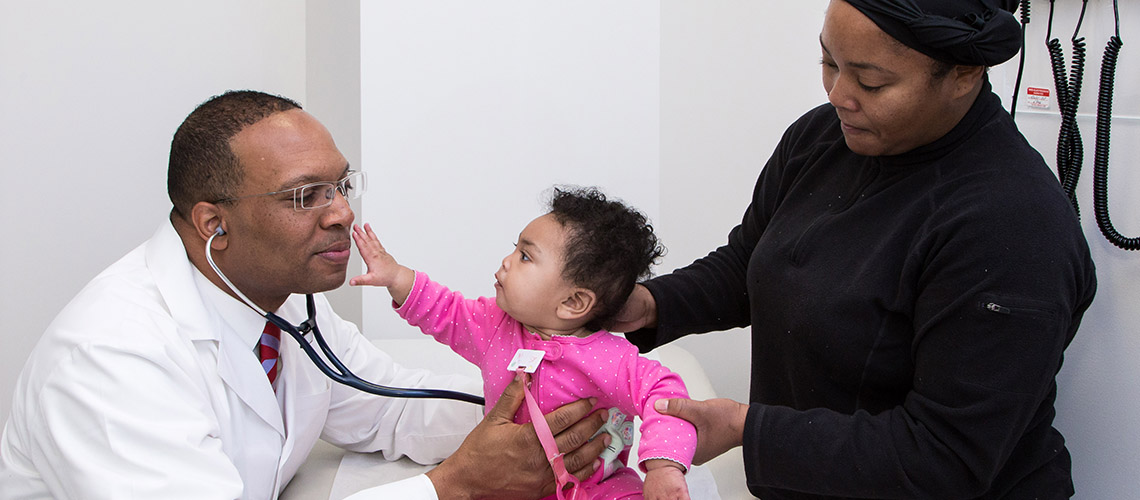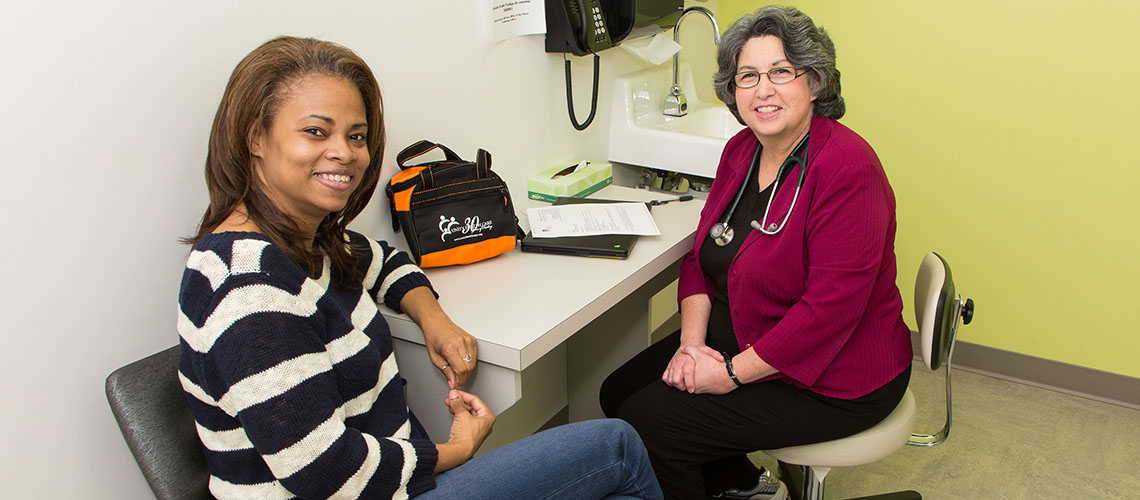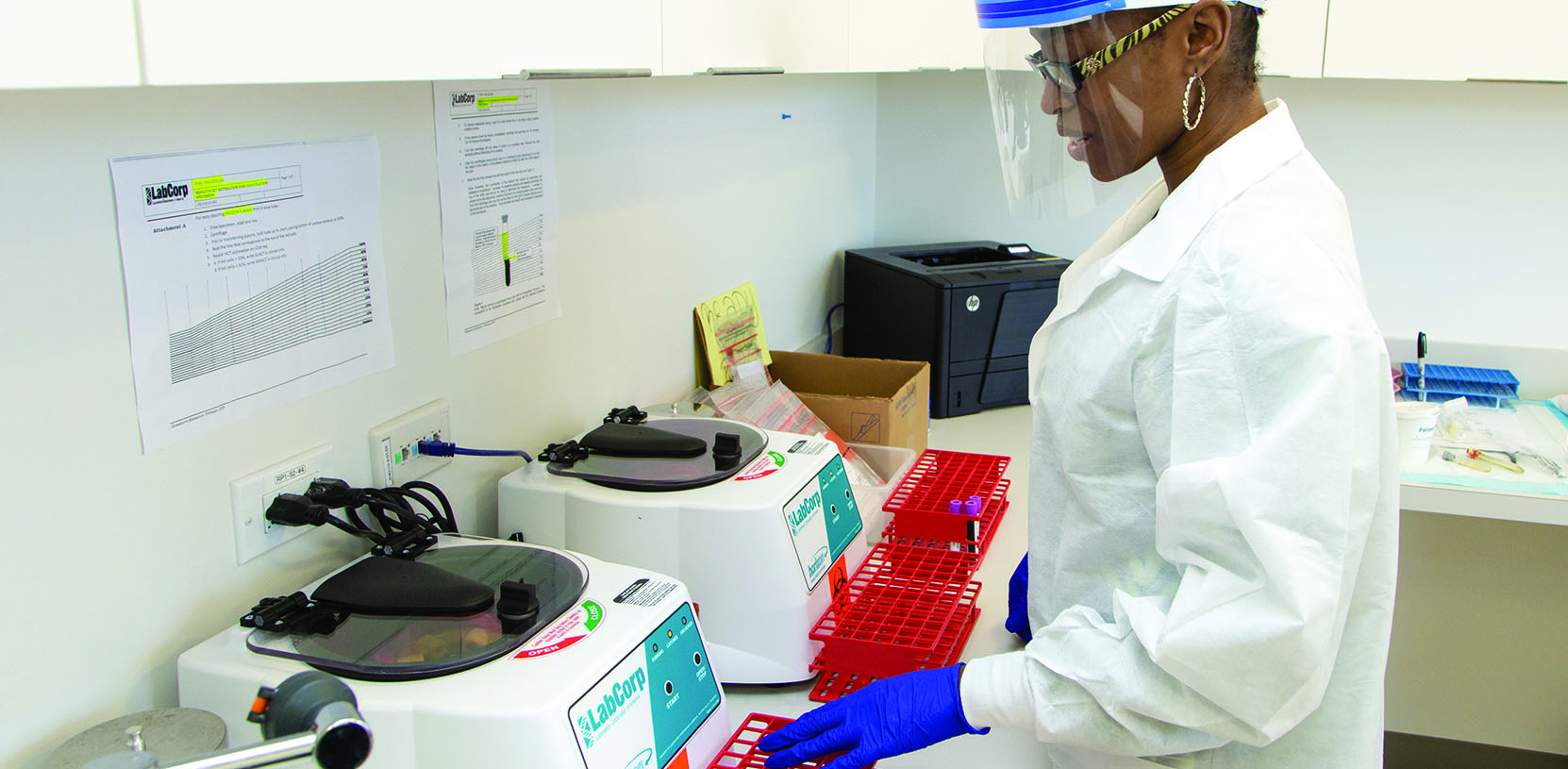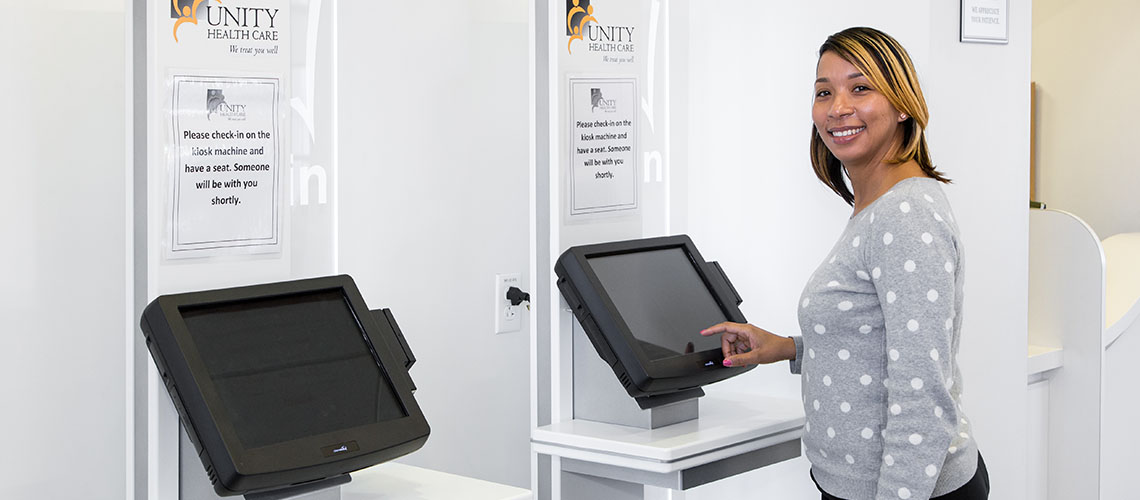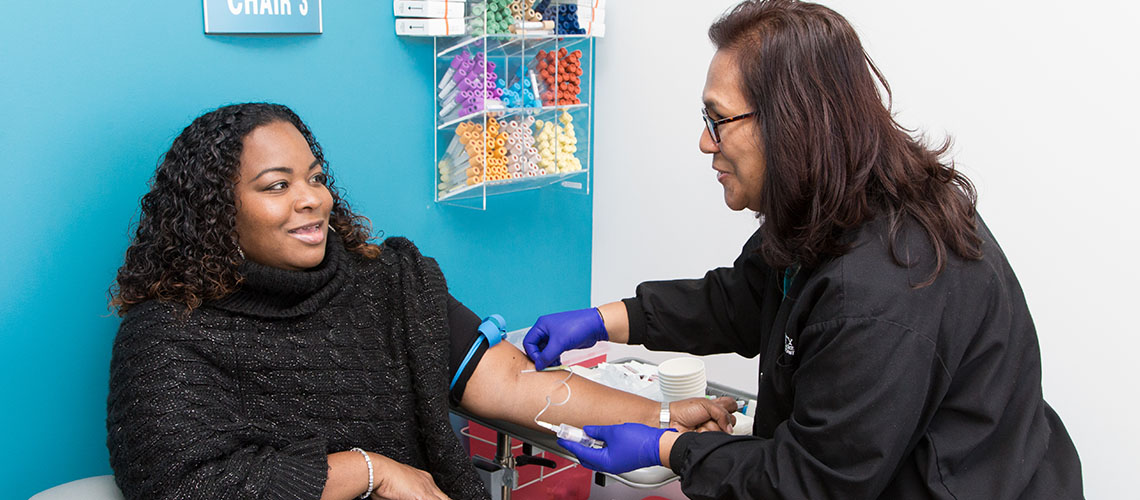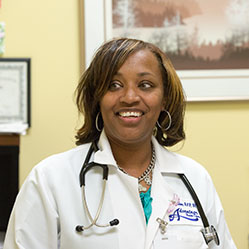
“It means everything.”
Those few words pack quite the emotional punch coming from a teary-eyed Michele Reynolds. She is describing how important Unity Health Care’s all-new Brentwood Health Center is to her and her family.
“We’re confident and comfortable that we’re going to get quality care, and that’s so important,” she says. “Rather than going to a traditional hospital, where it feels rushed a lot of times and no one wants to talk to you or explain things, here people genuinely care. It’s peace of mind for me and my kids.”
“We provide care for those who are looking for a sense of connection with their providers,” notes Dr. Reggie Elliott, Unity’s Medical Director and Washington, D.C. native.
That was the hope of the people behind the new 26,000 square foot Brentwood medical facility, which replaced a small, outdated health clinic that was situated across the street for many years. The clinic, in Washington, D.C.’s Ward 5, is driving Unity’s mission to promote healthier communities through compassion and comprehensive health and human services, regardless of one’s ability to pay.
Access to free or discounted health care is a necessity in this neighborhood.
The Brentwood community has an 18 percent unemployment rate, and about 30 percent of its residents live below the poverty line. Medicaid and D.C. medical assistance programs covered 72 percent of patient visits at the old facility.
“When a patient trusts the team that they are working with, they are comfortable to come back more often and will be more likely to share what’s going on with them,”
Tracy Harrison
Unity’s vice president of clinical administration
While this clinic is not the only option for care in the neighborhood, it is the only choice for those without insurance. As a Federally Qualified Health Center, this clinic is required to accept payments on a sliding scale. Patients pay based on family size or income.
“The other facilities only treat patients with coverage, but we will accept anyone regardless if they have the ability to pay or not,” says Ramona Winfree, Unity’s Enrollment Specialist. “We will always treat everyone. So while we may not be the only choice, I think we’re the best choice.”
What also makes the facility special is that it provides a host of services that makes health care a one-stop-shopping experience. In addition to providing regular primary health visits, the facility offers dental services, psychiatry, OB / GYN, podiatry, ophthalmology, psychotherapy and care for infectious diseases. There are also social workers available for patients needing counseling or help with other services. The 31 exam rooms far surpass the eight found at the original clinic.
Having a beautiful, clean facility in this neighborhood is so important to the people who live here, especially because it offers such a variety of services,” notes Teresa Acquaviva (seated right), a family nurse practitioner who worked at the former facility for more than a decade.
“What makes it even greater is that it’s open until 10:00 each night and is open on Saturdays,” Reynolds says. “Now, if one of my kids gets sick, it makes it easier to work around my work schedule, and I don’t have to wait until the next day for them to be seen.”
“Our role for the community is to allow patients to be empowered and take control of their health care, and we help them overcome some of the social determinants that might keep them from seeking care,” says Tracy Harrison, Unity’s Vice President of Clinical Administration. “Here, they can have all of their needs met. If they have an urgent need, they can come right in and stay in the community they are comfortable in.”
Teresa Acquaviva, a Family Nurse Practitioner who worked at the former facility for more than a decade, says the difference between the two is like night and day.
“Now, you can see the treetops, you can see the sun, and it helps to have lighting and open space,” Acquaviva says. “Plus, there’s parking in front, which is a big change from across the street, where it was a real challenge to find parking. Having a beautiful, clean facility in this neighborhood is so important to the people who live here, especially because it offers such a variety of services.”
The new 26,000 square foot facility provides a host of services that makes health care a one-stop-shopping experience for the Brentwood residents.
The Unity team has also been very thoughtful in addressing ease of access and in building trust with its patients by ensuring the facility is woven into the fabric of the community.
First, the center is connected to the larger MLS Community Life Center, an anchor institution in the neighborhood run by Israel Baptist Church and several partner organizations. The Community Life Center provides multi-purpose events space for families from the Brookland, Brentwood and Edgewood neighborhoods as well as throughout Ward 5.
“This was a challenging deal. A church is not our typical borrower,” said Abi Suarez, a business development officer at Capital Impact Partners. “But the church knew it wanted to develop the empty lot next to it, and it surveyed the neighborhood to see what services were missing. The partnership between Unity Health and Israel Baptist Church is what made the transaction so interesting: both organizations are committed to serving the community. They came together and as a result solved one of the community’s biggest problems – access to quality, affordable healthcare.”
Financing the building was a collaborative effort between Capital Impact Partners and several other organizations, and it included the allocation of New Markets Tax Credits. This program is part of the U.S. Treasury Department’s Community Development Financial Institutions (CDFI) Fund. It helps CDFIs like Capital Impact leverage private investment through the use of tax incentives. Incentive programs like these are vital to bring much needed capital from the private sector and support efforts to finance projects in low-income communities.
Many of the staff members also have long histories and personal connections to the area—beginning with the Director himself.
The new facility includes a number of enhancements, including digital check kiosks, to improve the patient experience from the moment they walk in the door.
Dr. Reggie Elliott is the Medical Director for the center. He returned to D.C. and his neighborhood after a 25-year absence.
“I grew up three blocks away from here, and it’s so fulfilling for me to come back to the community I know and the people and families I have known for so long and help to provide compassionate care for all,” he says. “We provide care for those who are looking for a sense of connection with their providers.”
Sandra Rodriguez, medical assistant and phlebotomist—the person who takes blood for lab tests—originally worked across the street and came to the new facility along with many of the same patients and staff.
“The patients make it special. There’s a whole lot of different cultures and different languages spoken, and my patients know and trust me because we have been working together so long,” she says. “When they come to the lab, they know to ask for that funny Spanish lady.”
“The patients make it special. There’s a whole lot of different cultures and different languages spoken, and my patients know and trust me because we have been working together so long. When they come to the lab, they know to ask for that funny Spanish lady,” laughs Sandra Rodriguez, medical assistant and phlebotomist (standing right)
Patients tend to agree, and they often talk to staff about why they choose to come to Unity.
“One of the reasons is that we offer our patients a variety of things and, regardless if they can pay or not, they are dealing with very good doctors and social services,” says Winfree. “It’s like a one-stop shop. You can see a case manager while you’re here, and there are plenty of services available.”
“When a patient trusts the team that they are working with, they are comfortable to come back more often and will be more likely to share what’s going on with them,” remarked Harrison. “For instance, there could be some social things happening in the home that could keep them from getting their health care needs met. When they see someone like Sandra time and time again, they feel connected and comfortable. That’s the connection we want everyone to feel. We want to treat the whole community.”
